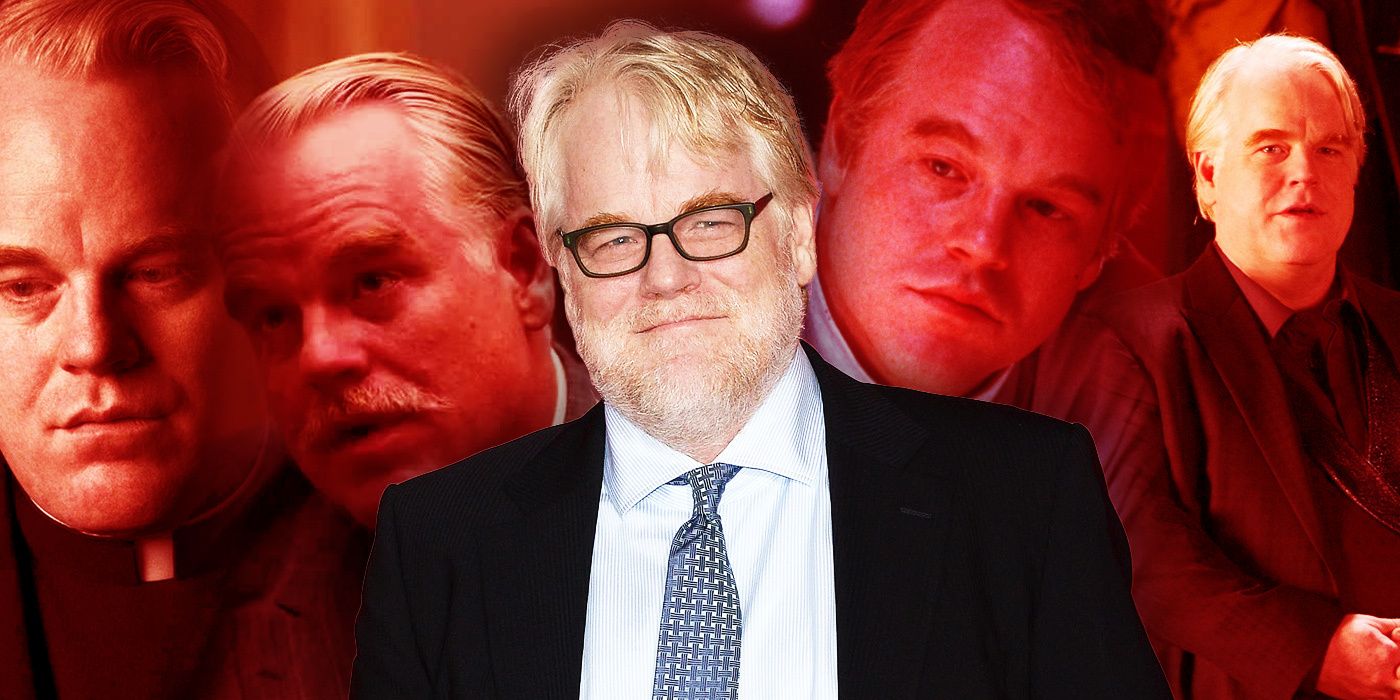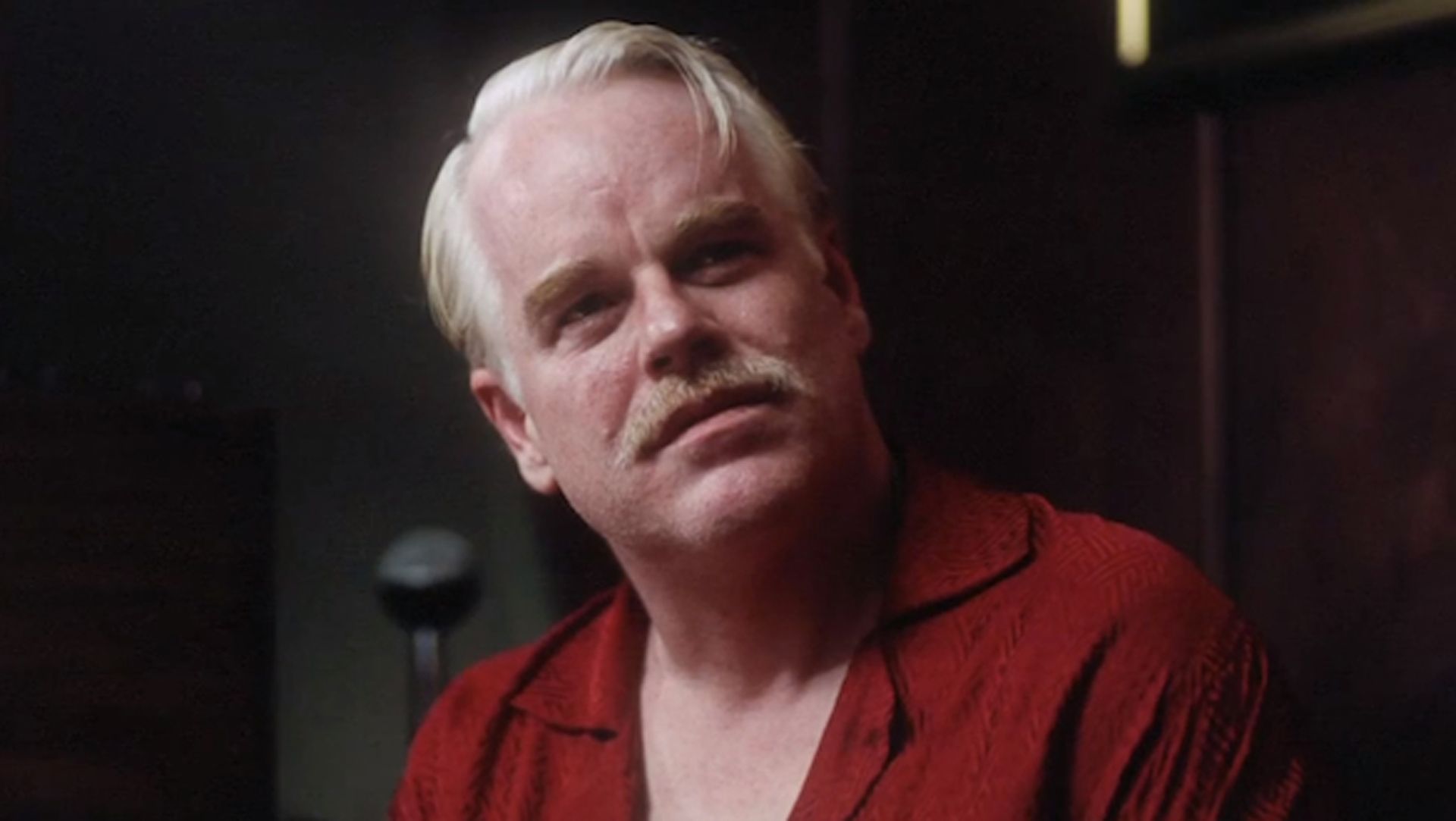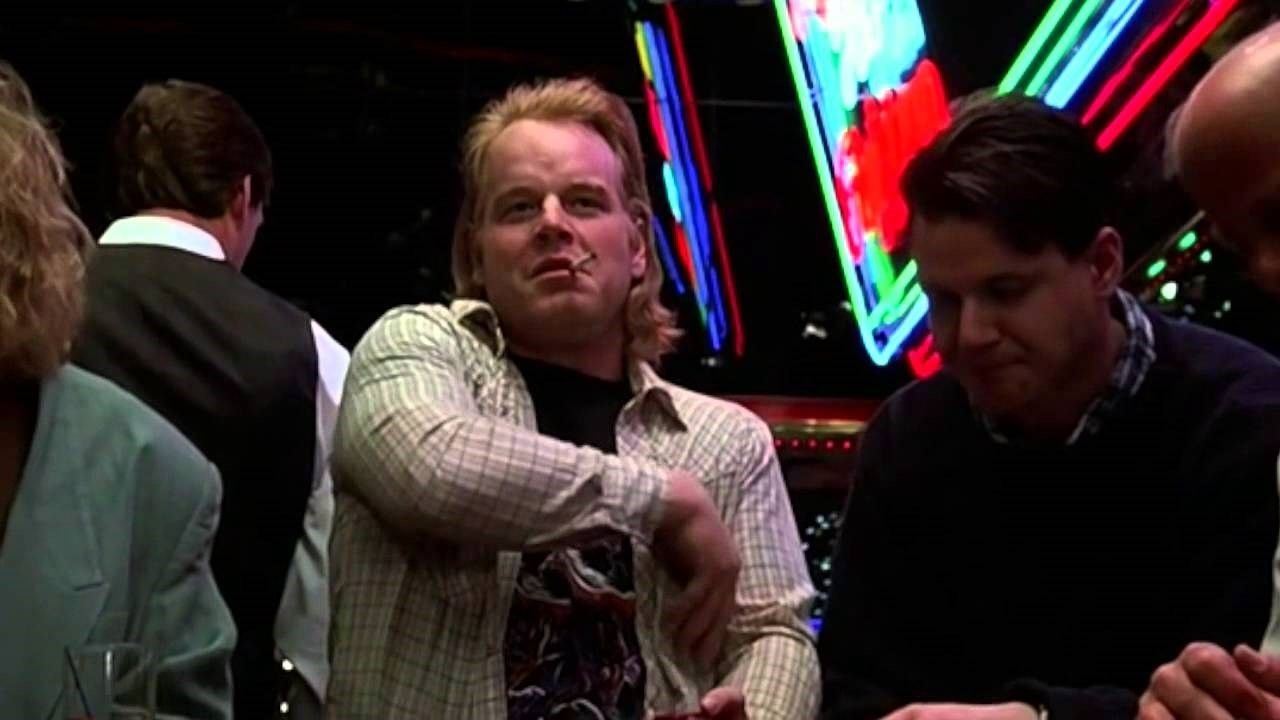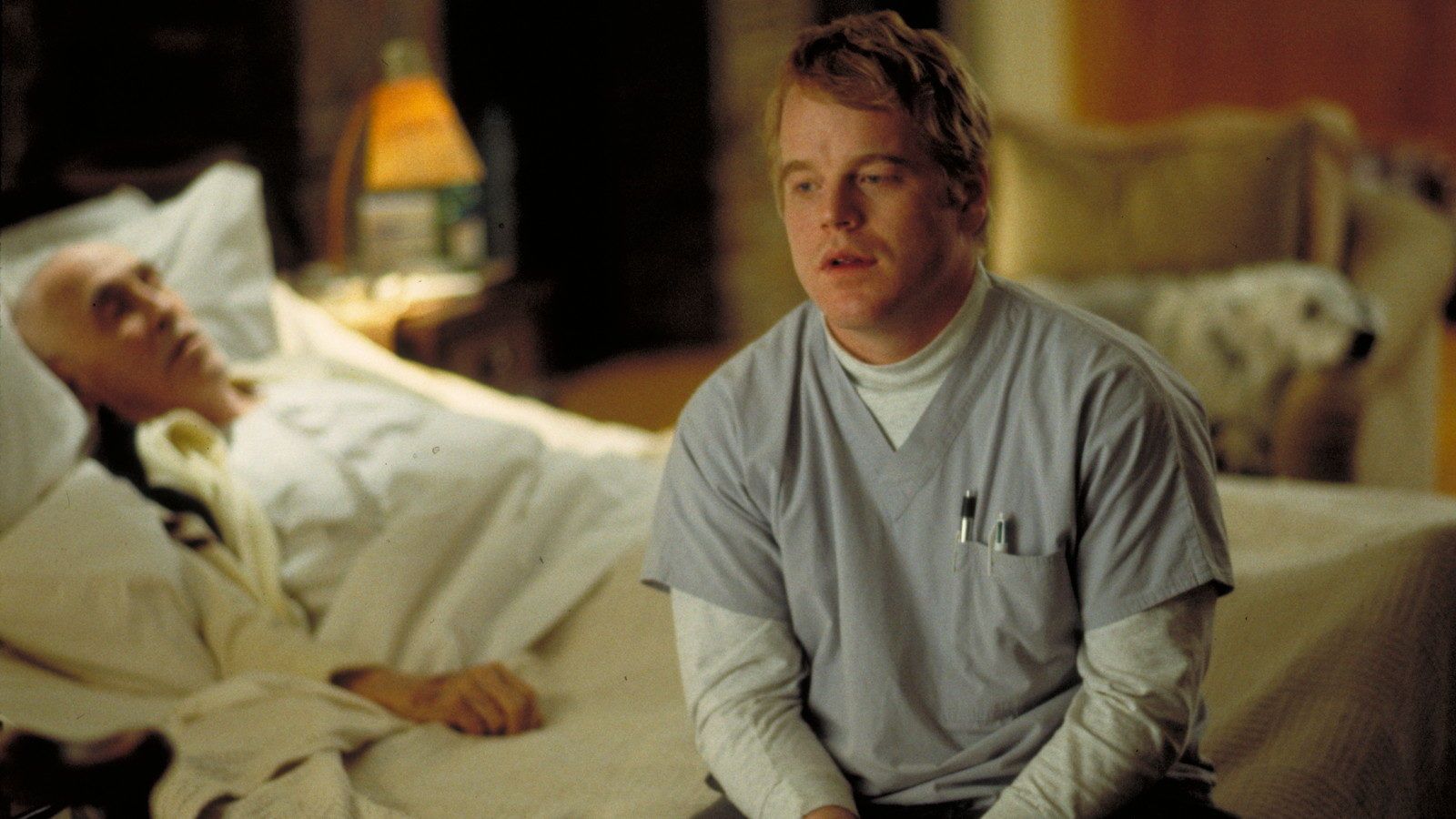Paul Thomas Anderson’s latest film Licorice Pizza is a throwback to his earlier films Magnolia and Boogie Nights, and not just because of the gorgeous Southern California vistas. While his later projects would feature more intimate casts, Anderson’s earlier films featured sprawling ensembles of many established names that simultaneously launched a younger generation of stars. In the case of Licorice Pizza, one of those breakout performances is Cooper Hoffman in the role of aspiring actor Gary Valentine. The name is likely familiar for longtime PTA fans, as the breakout star’s father was none other than Philip Seymour Hoffman, who appeared in five of Anderson’s films before his tragic passing in 2014. While there are more performers that appeared in multiple Anderson films, including William H. Macy, John C. Reilly, Julianne Moore, and Phillip Baker Hall, his working relationship with the elder Hoffman was distinct.
When thinking about the all-time great actor/director collaborations, Robert De Niro and Martin Scorsese, John Ford and John Wayne, or Tim Burton and Johnny Depp all come to mind. It's easy to just think about topline lead performances, but a great director also knows how to play to an actor’s strengths regardless of their screen time. Anderson utilized Hoffman as his chief scene-stealer before their last collaboration produced one of the greatest screen performances in recent memory.
Anderson’s directorial debut Hard Eight is a notable departure from the films that would follow, as the intimate gambling drama was more in line with the brand of neo-noir thrillers that characterized ‘90s indie films. The film focuses on the relationship between the senior card shark Sydney (Phillip Baker Hall) and his young protege John Finnegan (John C. Reilly), and the film is almost squarely focused on their conversations.
When Hoffman shows up as a foul-mouthed craps player who tests Sydney’s patience, he essentially changes the entire energy of the film. Anderson didn’t need to break from his narrow focus to explore the scum of the Las Vegas gambling circuit, as he pinpointed the seediness in one character. Hoffman’s eccentric energy was completely different from the sensitive, methodical conversations between Sydney and John. Hoffman improvised most of the scene, and thankfully Anderson decided to keep giving him juicy parts.
He tasked Hoffman with creating a similar tonal shift in Boogie Nights, and given the stacked ensemble, saying he’s a standout is no small compliment. One of the greatest accomplishments of Boogie Nights is that it humanizes an industry and profession that’s disrespected, and there are few moments of empathy as touching as Hoffman’s tearful breakdown. His character Scotty is a lowly boom mic operator who yearns for Mark Wahlberg’s Dirk Diggler, and after one failed pass Scotty realizes the rising star has no interest in him. It's a deeply affecting moment of heartbreak granted to a character (who by the nature of his position) is relegated to the background.
This same cinematic empathy is key in Hoffman’s Magnolia performance; it showed a judiciousness on Hoffman’s path, as he was tasked with bridging the gap between two great actors rather than receiving a lot of standout moments of his own. Hoffman’s nurse Phil Pharma attempts to rekindle the relationship between former television show producer Earl (Jason Robards) and his son, the motivational speaker Frank T.J. Mackey (Tom Cruise). The connections between these two toxic men produce some of Magnolia’s most devastating moments, and Anderson needed an affectionate presence to intimate that relationship. It was almost subversive to not cast Hoffman as a scene-stealer; he was able to give other actors room to shine.
However, Anderson also knew how to have fun, and there isn’t a funnier scene within any of his films than Hoffman’s furious beration of Adam Sandler in Punch-Drunk Love. In a film that centers around Barry Egan’s (Sandler) anxieties about his life being dominated by others, Hoffman is the most memorable of his bullies. The “Are You Threatening Me?” sequence played a central role in the Punch-Drunk Love marketing campaign, and Anderson fans will definitely want to check out Hoffman’s hilarious musical number that was included on the DVD release.
Hoffman proved time and time again that he could create a fully realized character in just a few moments, and in his last collaboration with Anderson he was granted a much larger role. The role of the Ron L. Hubbard stand-in character Lancaster Dodd (whose following “The Cause” was a thinly veiled allusion to Scientology) is among PTA’s most complex characters; it's never entirely clear what the lines are between his genuine belief in radicalism, his charismatic showmanship, and his bloated self-obsession. In one of the greatest screen performances of the decade, Hoffman hints at these discrepancies while leaving the character open for interpretation.
It's exciting to watch Cooper Hoffman in Licorice Pizza and see a star being born, but Anderson has never just reserved his best parts for his leads. Looking back at the most memorable scenes in his films, Philip Seymour Hoffman was part of so many. Even if he was never the leading man that his son has proven to be, Hoffman and Anderson proved that a great collaboration doesn’t happen overnight.




